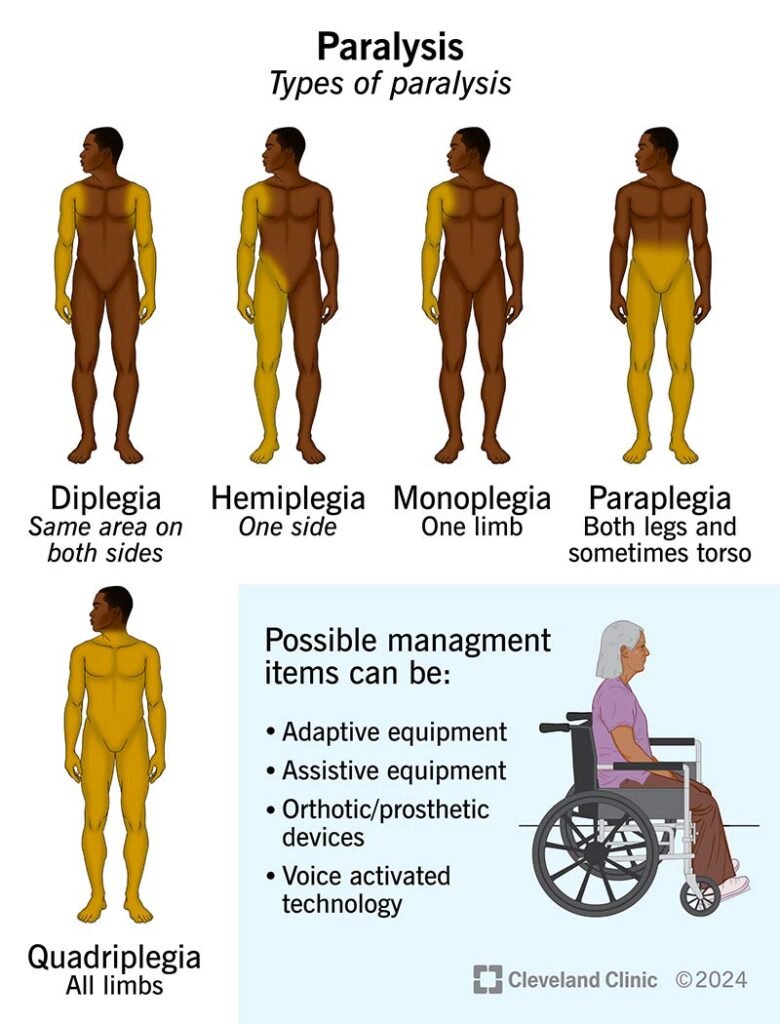
What is Paralysis?
Paralysis is a medical condition characterized by the loss of muscle function in one or more parts of the body. This condition occurs when there is damage to the nervous system, affecting the brain, spinal cord, or peripheral nerves. The degree of paralysis can vary from complete loss of movement to partial weakness, impacting daily life significantly.
Types of Paralysis
There are several types of paralysis, categorized based on the affected area:
- Monoplegia: This affects a single limb or body part.
- Hemiplegia: This involves paralysis on one side of the body, commonly seen in stroke patients.
- Paraplegia: This refers to the paralysis of the lower limbs, often resulting from spinal cord injuries.
- Quadriplegia: This encompasses paralysis of all four limbs, typically caused by severe spinal cord damage.
Causes of Paralysis
The causes of paralysis can be diverse, ranging from traumatic injuries, strokes, multiple sclerosis, to conditions like polio. It may also result from congenital disorders or diseases that affect the nervous system. Understanding these causes is vital for diagnosis and treatment, allowing healthcare providers to tailor interventions effectively.
In summary, paralysis is a complex condition that significantly affects a person’s mobility and quality of life. Early diagnosis and rehabilitation are crucial for improving outcomes and fostering independence for those living with this condition.

What is Information Paralysis?
Information paralysis is a state of overthinking that occurs when an individual is overwhelmed by the abundance of information available. It can hinder decision-making processes, leading to feelings of frustration and stress. This phenomenon is particularly prevalent in today’s technology-driven age, where information is abundant and constantly accessible.
Causes of Information Paralysis
The roots of information paralysis can be traced to a few key factors. Firstly, the sheer volume of information can create confusion, making it challenging to identify relevant data. Secondly, cognitive overload occurs when our brains struggle to process too much information at once. Lastly, fear of making the wrong choice can paralyze decision-making, as individuals may resort to inaction rather than risk making a mistake.
Overcoming Information Paralysis
To combat information paralysis, it is essential to adopt structured approaches. One effective strategy is to limit information intake, focusing only on relevant sources that pertain to the decision at hand. Additionally, breaking down complex decisions into smaller tasks can alleviate stress and foster progress. Finally, trusting one’s instincts and incorporating a set time for decision-making can help mitigate feelings of overthinking.
